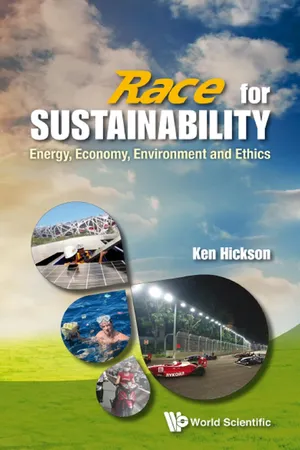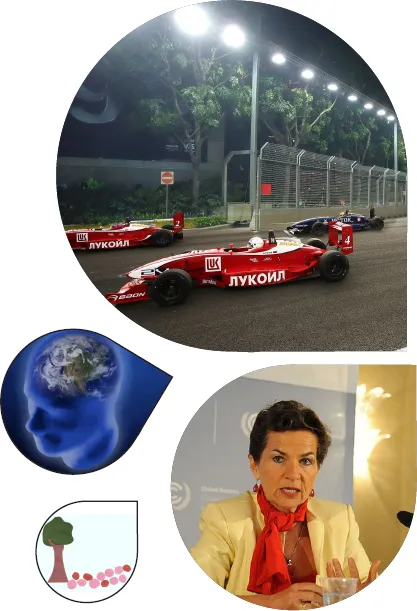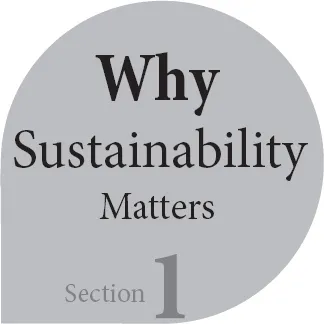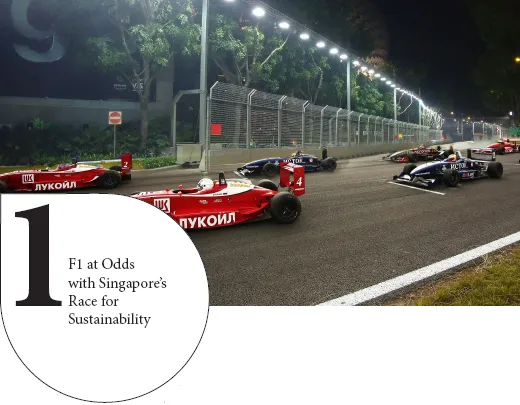![]()
F1 at Odds with Singapore’s Race for Sustainability
Impactful Advocacy: Sense and Sustainability
12 Steps to Sustainability in Business
Profile — Christiana Figueres: Global Emissions Reduction Efforts
![]()
Photo adapted from David (2009), WikiMedia Commons (public domain) by Lionel Seow: www. commons.wikimedia.org/wiki/ File:RafflesAvenue.webp.
This is a “hot button” story which refuses to go away. It started in September 2012 and it demonstrated that writers/journalists have an advocating role to play by not only reporting, but drawing attention to issues and opportunities. I made the discovery a year ago that in the same month Singapore was hosting its National Energy Efficiency Conference, an international Corporate Social Responsibility summit, launching a five month long climate change awareness campaign called “Our Green Home” and the Singapore Environment Council’s “G1” event, there was also, arguably, the biggest polluting event on the planet — a night time Formula 1 motor race. This article updates my early revelations but starts with the heading and the letter which appeared in the Sunday Times on 27 September 2012…
Singapore’s decision to commit to another five years of the Formula 1 (F1) race needs to be tinged with some trepidation (“Five more years for S’pore race”, The Sunday Times, 23 September 2012).
The F1 race here is arguably the most “energy inefficient” event in the world, largely because it is held at night and requires a massive amount of extra lighting. Along with an overdose of fuel burn from the cars, the air is polluted and Singapore’s greenhouse gas emissions in the atmosphere increases. All the additional air-conditioned hospitality buildings and accompanying electric-charged entertainment must also be taken into account.
And this was all happening in the same week that Singapore hosted its National Energy Efficiency Conference, and the same month the National Climate Change Secretariat launched a five-month-long series of exhibitions and roadshows highlighting climate change’s impact on Singapore.
Using less energy is a primary message delivered to all.
With this in mind, it would be advisable for the organisers of the Singapore Grand Prix to build energy efficiency into the next series of events, conduct a complete energy audit, measure its environmental impact and take all these into account when evaluating its total economic benefit to Singapore.
Interestingly, the race also coincided with the news that Singapore had won an international award for its i Light Marina Bay — Asia’s first and only sustainable light art festival — which attracted over 500,000 visitors to Marina Bay in March (“i Light Marina Bay Wins Award”, The Sunday Times, 23 September, 2012). It was measured and managed for sustainability like the London Olympics, which set a new global “gold” standard for events — ISO 20121 (Event Sustainability Management System).
Maybe Singapore should secure another new motor racing event — Formula E — which was unveiled recently as a global championship involving only electric cars.
That would put Singapore truly in the race for sustainability.
Kenneth Hickson.
Yes, I have to admit. That was me. One and the same person. I wrote that letter and the Sunday Times published it.
More recently (in June 2013), I was interviewed on the same subject by Nobuko Kashiwagi for the United Kingdom based UBrain TV (a web-based service) — see www.ubraintv.com — and I was asked about how to make events more sustainable, as this was something our company Sustain Ability Showcase Asia (SASA), was in the business of doing.
I explained that our company had offered to be involved in the F1 event in Singapore as we believed it could be run in a more sustainable fashion.
Of course, we couldn’t — or wouldn’t — stop the cars and the entertainment. But as it is a night-time event, it requires massive use of lighting and I believe there is the opportunity to introduce some significant energy saving measures. Manage the lighting better. There is also the opportunity to manage water, the hospitality, air conditioning, waste, etc. All this will add up to reducing the environmental impact of the event.
I made the point that events in themselves are inherently unsustainable, involving lots of people and energy, but there are guidelines and an international sustainability standard to follow. It is ISO 20121, called the Olympic gold standard because it was developed and used to provide a standard of sustainability for the London Olympics in 2012.
If the London Olympics can be sustainable, so can the F1 or any event in the world for that matter.
The story continues. And as recently as late June 2013, came the announcement from Federation Internationale de l’Automobile, or FIA, that for the next ten years the aim was to help turn motor racing events around the world towards sustainability. At the same time a commitment to introduce a new class Formula E, for electric cars.
Implications for the global sport of motor racing and all host countries of F1 events. Implications for Singapore.
But let’s track the race for sustainability story back to September 2012. I think I raised a few eyebrows, when my newsletter came out with the headlines and the commentary (even before the letter appeared in the Straits Times), as follows:
Race for Sustainability?
This month is special for Singapore (September 2012). It presents its National Energy Efficiency Conference with overseas and local experts and delegates; hosts an international CSR summit and launches a five month long climate change awareness campaign called “Our Green Home” at a Singapore Environment Council “G1” event. But to top all that, Singapore hosts arguably the biggest polluting event on the planet — a night time F1 motor race. Besides being energy inefficient — all those lights as well as powerful fuel guzzling cars — it would be the most unsustainable event ever. In the same month, the Singapore Zoo welcomed two pandas from China to an appropriately air-conditioned cool cage. We know that air conditioning uses about 70% of Singapore’s stationary energy. All too much to take in? Enough to make your editor take to riding a Singapore-built bamboo-framed bike! Definitely the most sustainable and energy efficient form of transport in the world.
In the next issue of my newsletter — issue 175 dated 16–30 September — I couldn’t resist another niggling commentary. Drawing attention to the wealth of excellent material from experts at the National Energy Efficiency Conference and the decision to proceed with another five years of F1 racing:
Abuse of Power?
We are talking about the misuse of energy here, not political power or human rights. We are concerned with the waste of a finite resource. Of the pollution caused by fossil fuels to the atmosphere and the air we breathe. A lot of talk — and some action — is going on to get countries, cities and companies to clean up their energy act. Energy efficiency is usually identified as the easiest way to go. Stop the waste of energy. And save money on your power bills at the same time. So this week’s National Energy Efficiency Conference is drawing on some of the best brains and some of the best examples from business around the world. There are also a lot of good ideas and applications on clean energy and even cleaner transportation in this issue. And while Singapore suffers in silence with the massive energy use (waste?) associated with its F1 night time races — look at all the lights and cars! — there’s an announcement from the international motorsport body that a new electric vehicle race is scheduled for the future. A move in the right direction, which might make more of us think about the real energy cost and environmental impact of unsustainable car racing events against the economic benefits.
In the same issue, we reported on a move by FIA to introduce Formula E — a racing series for electric vehicles.
Getting on Track with Electric Vehicles
to Share and Race
Electric vehicles represent a balance between the need for mobility and the impact of private transport on the environment, with its high energy efficiency and low overall emissions. And now, finally, the FIA has woken up to the opportunity presented by cleaner burning transport with the introduction of Formula E — a racing series for electric vehicles, to begin in 2014.
We repeated the article from Theo Leggett for BBC News (28 August 2012):
Formula E Electric Car Racing Series Is Launched by FIA
In the world of motor racing the internal combustion engine is king.
Circuits around the world regularly echo to the earsplitting howl of racing V10s and V12s at full throttle. But perhaps, not for much longer.
Motorsport’s governing body, the Federation Internationale de l’Automobile, or FIA, has announced plans for a brand new motor racing series, designed exclusively for electric cars.
The new championship, known as Formula E, is due to begin in 2014.
Manufacturers are being invited to design and build their own cars, which will race on city-centre circuits around the world.
It will be run by Formula E Holdings, a consortium of investors le...









